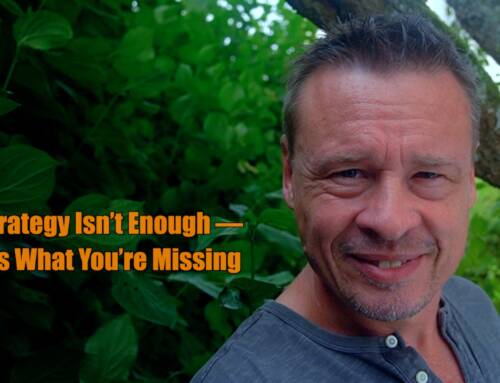As a communications advisor working in development cooperation for 20+ years, I must have seen thousands of draft pieces of communication, all seeking the attention of certain readers or viewers.
In a way these articles or videos are like startups pitching to corporate for investment. Only in development cooperation, it is projects talking to a ministry or a broader public to get their buy-in into the usefulness of an already provided funding by showing impact of the work they’ve commenced.
I noticed these 5 problematic aspects similar in both areas:
🧩 No individualization
Startups often use a generic investor deck to pitch to venture capitalists, corporate innovation teams, and experts. However, these people don’t care about the market size and revenue potential. They want to know how a startup can help them solve a particular issue their business is faced with.
Similarly, projects in development cooperation are preaching to the converted. These people sit in ministries and though they might say otherwise, don’t really care about how cost-efficient and well managed a project operates. They don’t want to be addressed. They want to see how well the communication reaches the broader public.
Don’t waste valuable time on operational data, background information and addressing the wrong crowd.
🧩 Lack of clarity and too much self-focus
Startups often have difficulties with stating which exact problem they are solving and how exactly they’re attempting to do it.
Projects in development cooperation — that are already in operation – are having more of a problem with connecting the dots.
They might provide stats as to their impact but the reader has difficulty getting a grasp of how big their drop in the ocean actually is.
Their communication fails to reflect what other players are doing in the field.
🧩 Not being prepared to invite questions.
Apparently, startups sometimes react defensively when asked questions about different scenarios in an attempt to understand how a solution actually works.
Development cooperation projects don’t even really invite their readers to ask questions. Their communication includes contact email addresses, but they are not a very enticing way to stimulate a response. Besides, there’s nowhere a record of any questions asked and answered (except for live events).
🧩 Understating complexity
In their attempt to succeed and sell their solutions, some startups overpromise their ability to scale and integrate quickly with a large organization. They are underestimating corporate complexity.
Projects in development cooperation often don’t attempt to explain the complexity of the situation they work in. Their communications zoom in on the problem they’re trying to fix. They are talking only about themselves, losing the bigger picture everything is embedded in.
🧩 Not facing reality
Startups don’t take no for answer. They reach out to 10 different executives after the experts already said no. This causes inefficiency, waste of time, and despair.
Projects in development cooperation have the ability to actually ride the proverbial dead horse for a long time. More open communication, including value feedback mechanisms, would allow to change a set-up or get on with it if need be much quicker.





Leave A Comment